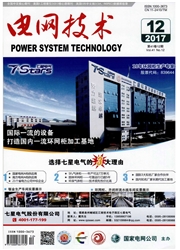

 中文摘要:
中文摘要:
贫困不仅受到收入的影响,而且受到其他因素的影响,需要从多个维度研究与解决居民贫困问题。基于主成分分析与层次分析方法,对不同维度的重要程度进行了赋权,进而构造加权多维贫困指数,用于多维贫困评价。运用中国居民营养与健康调查(CHNS)数据,对中国城乡居民多维贫困进行了测度与分解。实证结果表明:随着社会经济发展,中国居民总体贫困程度有所减轻,而医疗、卫生、收入、教育对多维贫困指数贡献较大;多维贫困呈现出不均衡性,农村居民多维贫困比城市居民严重,西部地区多维贫困比中、东部地区严重,这为中国居民脱贫路径的选择提供了决策依据。
 英文摘要:
英文摘要:
Poverty is not only influenced by income, but also influenced by some other factors. Therefore, we need to study and solve the problem of poverty of residents from multiple dimensions. Based on Principal com- ponent analysis and hierarchical analysis method, the degree of importance of different dimensions were weigh- ted. Then we construct a weighted multidimensional poverty index to evaluate the multidimensional poverty. According to Chinese residents of Nutrition and Health Survey (CHNS) data, we measure and decompose the multidimensional Poverty of Chinese urban and rural residents. The empirical results show that: with the de- velopment of the socio - economic , the overall level of Chinese residents in poverty has been reduced, and medical treatment, health, income and education contribute greater to the multidimensional Poverty Index; multidimensional poverty shows imbalance. The multidimensional poverty of rural residents is more severe than that in urban. And the multi -dimensional poverty in western region is more severe than that in the central and eastern region. This provides possible choice for policy makers to design the path of escaping the poverty.
 同期刊论文项目
同期刊论文项目
 同项目期刊论文
同项目期刊论文
 期刊信息
期刊信息
